Beijing calls the Morrison government ‘insane’ after Belt and Road retaliation
China’s foreign ministry in Beijing scorches Australia again after the Xi administration scuttled a high-level trade dialogue.
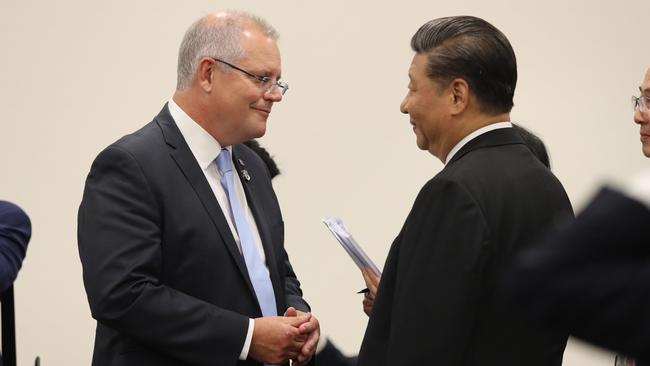
Beijing has blasted the Morrison government for its “insane suppression” of the Australia-China relationship, as it justified its tit-for-tat scuttling of a high-level economic and trade dialogue with Australia.
The suspension of the China-Australia Strategic Economic Dialogue on Thursday was apparently in retaliation to the Morrison government’s scrapping of Victoria’s Belt and Road deal and came after the announcement of a review of the 99-year lease of the Port of Darwin by Chinese company Landbridge.
It triggered a sell-off of the Australian dollar, stoked anxiety among China-exposed Australian businesses and was followed by a denunciation of the “wildness of Australian politicians” by a Chinese government adviser.
China’s Foreign Ministry spokesman blasted Australia at a press conference in Beijing on Thursday evening.
“We urge the Australian side to cast aside the Cold-War mentality and ideological bias, view China‘s development and China-Australia cooperation in a truly objective light, return to the rational track without further delay and correct its mistakes,” Mr Wang said.
“It should stop the insane suppression targeting China-Australia cooperation, stop politicising and stigmatising normal exchange and stop going further down the wrong path,” he said.
“Australia must bear all responsibility for this.”
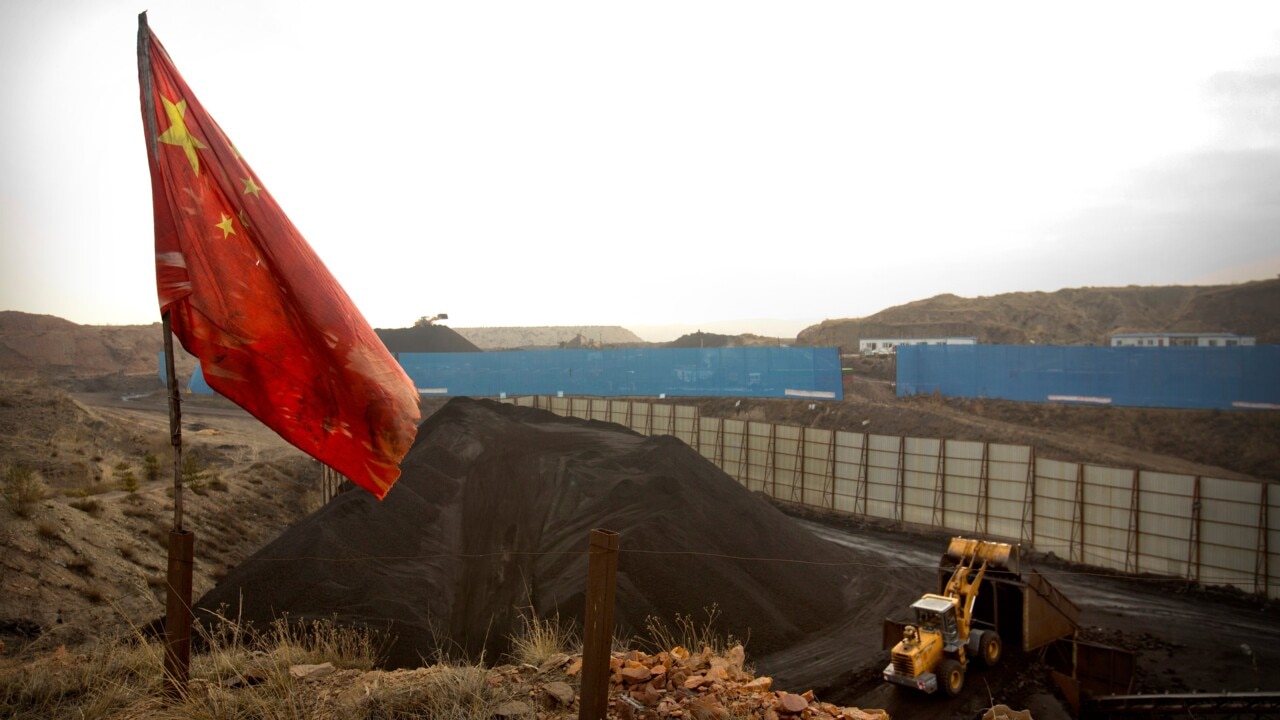
Speaking in London overnight, Foreign Minister Marise Payne said she was “disappointed’’ that China had suspended economic dialogue with Australia, as it has been a “valuable tool for minister to engage’’ in Treasury and finance.
“We have been very clear that we were willing and able to participate in an ongoing Strategic and Economic Dialogue that is ultimately a decision for China … Australia is very ready to engage in dialogue with our counterparts at any level,’’ she said.
China-exposed businesses were alarmed at the formalisation of a diplomatic freeze Xi Jinping’s administration had unofficially imposed in 2018 after the Turnbull government banned Huawei from Australia’s 5G network.
“Beijing’s decision to suspend the Strategic Economic Dialogue marks a new low in the relationship, one that is of deep concern to the business community,” said Australia China Business Council president David Olsson.
“This is a serious diplomatic challenge that cannot be dismissed as just another case of Beijing ramping up the pressure on Australia,” said Mr Olsson, a partner at the Hong Kong-headquartered law firm King & Wood Mallesons.
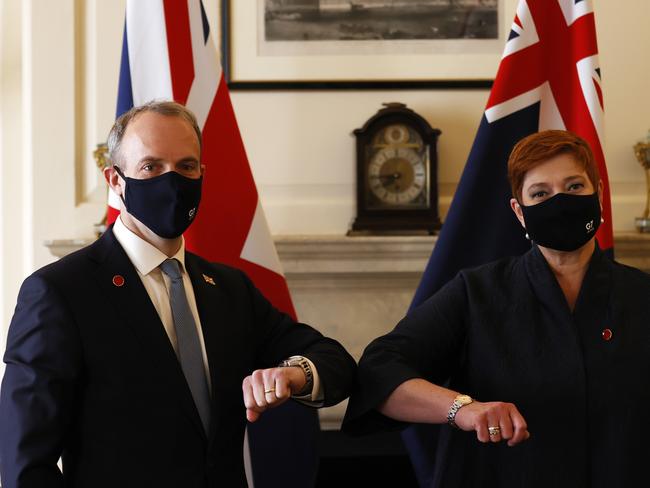
Over the past year, China has imposed trade strikes on more than $20bn of annual Australian imports, including coal, wine, barley, timber and lobster.
The Australian dollar on Thursday fell 0.5 per cent to US77.07c after the announcement, but had recovered by Friday.
Trade Minister Dan Tehan said it was “disappointing” to learn about the formal suspension.
“The Strategic Economic Dialogue, which was last held in 2017, is an important forum for Australia and China to work through issues relevant to our economic partnership,” Mr Tehan said.
“We remain open to holding the dialogue and engaging at the ministerial level,” he said.
The Australian government had previously described the accord as one of the “premier bilateral economic meetings with China”.
Mei Xinyu, an adviser to China’s Ministry of Commerce in Beijing, said the decision meant further promotion of trade and economic relations between Australia and China “would be frozen”.
Professor Mei told The Australian he was dismayed at the “wildness of Australian politicians” and the fast deterioration of the bilateral relationship.
“I cannot predict what further wild things the Australian side will do,” he said, warning Australian politicians should be careful about provoking retaliatory action from the Chinese government.
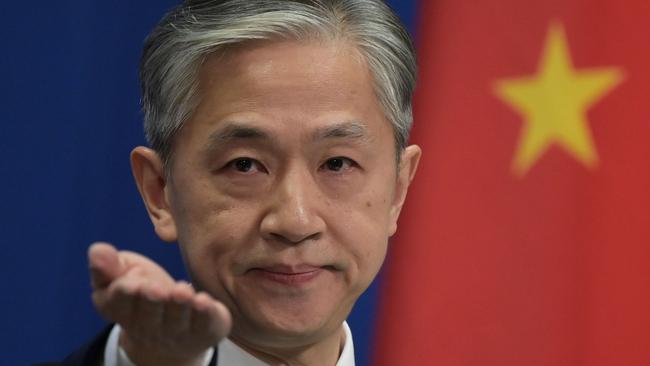
Richard Maude, who was international adviser to prime minister Julia Gillard when the dialogue was announced on a trip to Beijing in 2013, said the Morrison government would have expected retaliation after axing the Victorian Belt and Road agreement.
Maude, the executive director of policy at the Asia Society Australia, said the end of the dialogue would be a blow to Australia’s ability to access China’s most important economic decision-makers and solve investment and trade problems.
“Trust has collapsed on both sides – a stark contrast to the sense of opportunity and optimism at the time the economic dialogue was created in 2013,” he said.
Despite being billed as an annual meeting when it was announced by the Gillard government in 2013, the China-Australia Strategic Economic Dialogue only met three times, in 2014, 2015 and 2017.
At that last meeting in Beijing in September 2017, then treasurer Scott Morrison and then trade minister Steven Ciobo agreed that Australia would co-operate on Belt and Road projects in third-party counties.
Andrew Robb, who as Trade minister in the Abbott government attended the first and second meetings of the dialogue, said they were the highest level economic and trade discussions held between Australia and China.
“To have these meetings cancelled is extremely unfortunate - it makes it more and more difficult to resolve our differences if we don’t have face-to-face discussions,” Mr Robb told The Australian.
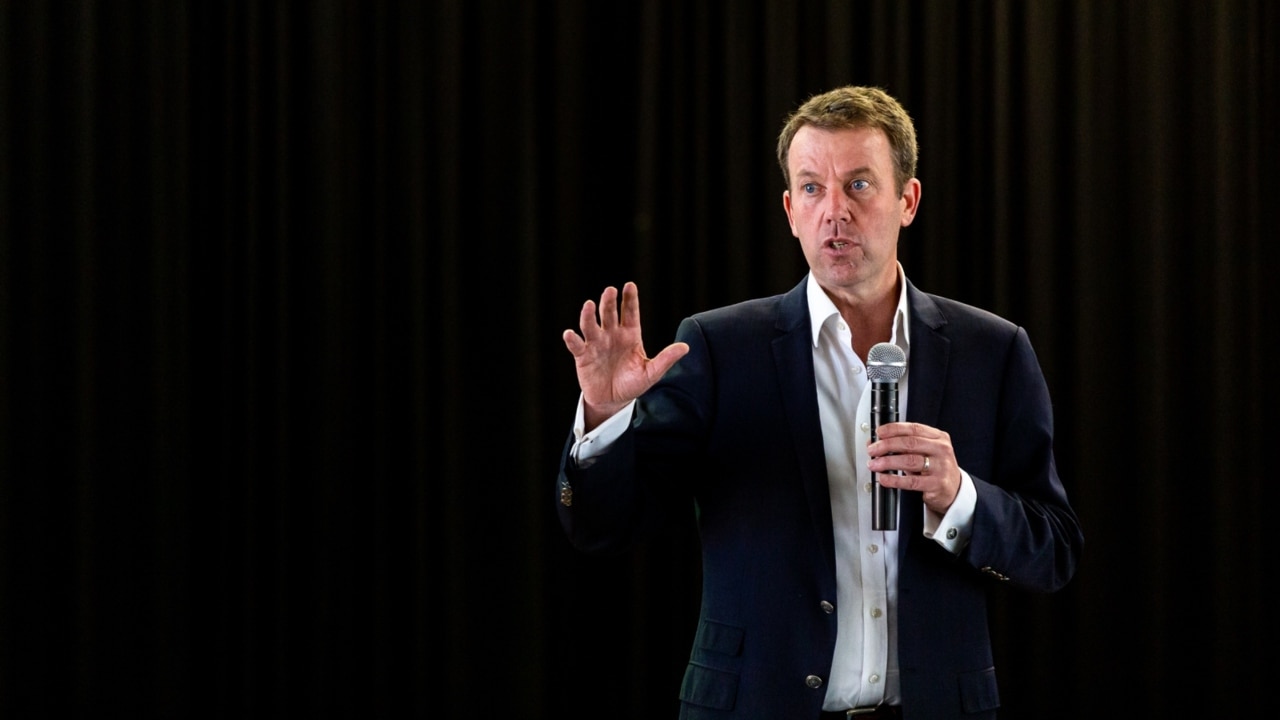
“It’s going to set us back, further and further, in any attempts to bridge the differences,” he said.
At the G7 meeting in London the world’s wealthiest democratic nations called on China to “participate constructively in the rules-based international system’’, allow an independent investigation in Xinjiang and respect Hong Kong’s rights and freedoms.
G7 foreign ministers including US Secretary of State Antony Blinken, British Foreign Secretary Dominic Raab plus guests Australia, South Africa, South Korea and India issued a joint communique encouraging China to address global challenges including climate change and biodiversity loss, to promote economic recovery from COVID-19 and to support the fight against the current pandemic and prevent future ones.
Senator Payne, who attended a dinner at Lancaster House discussing the Indo-Pacific and then had a bilateral meeting with Mr Raab, tweeted that Australian and British bonds were “stronger than ever” as the partnership in the Indo-Pacific deepened.
More Coverage
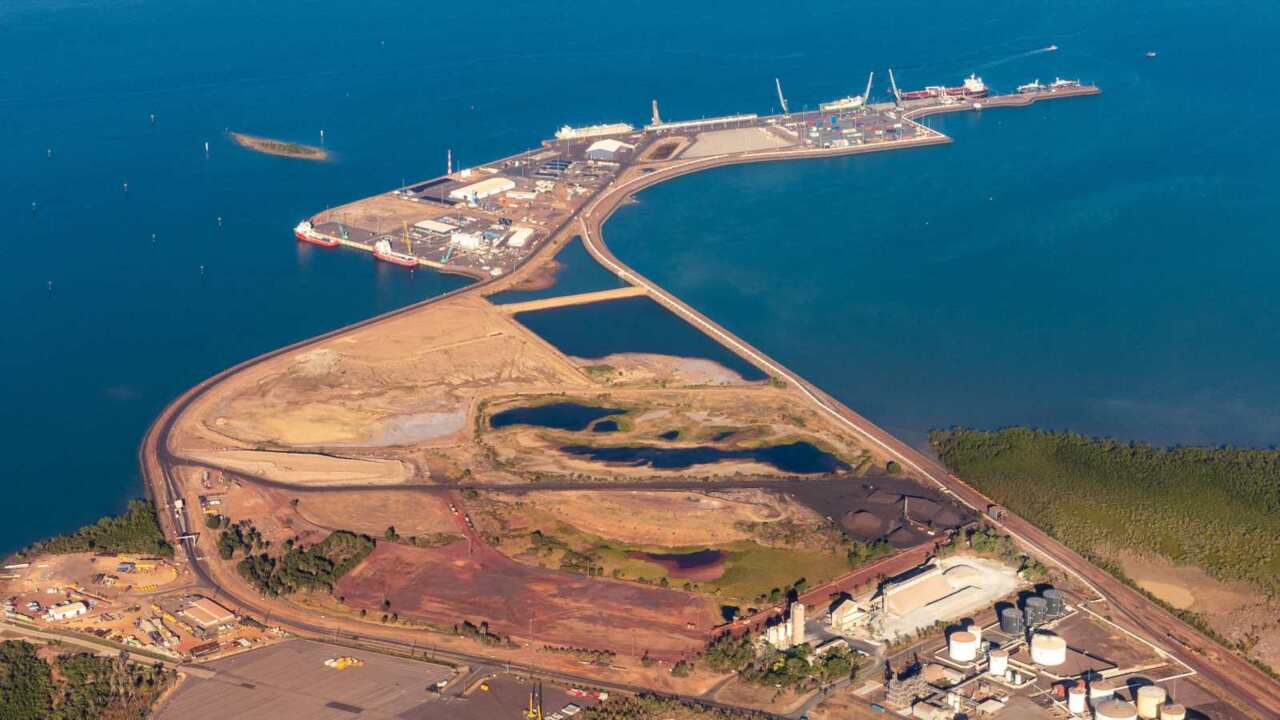


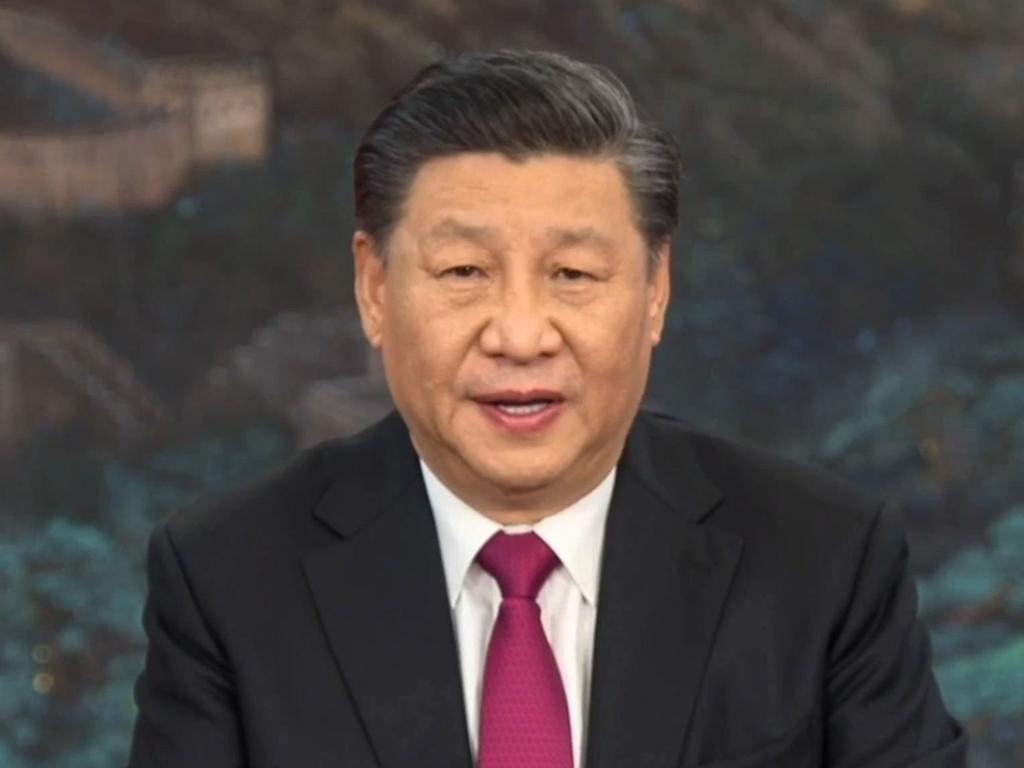
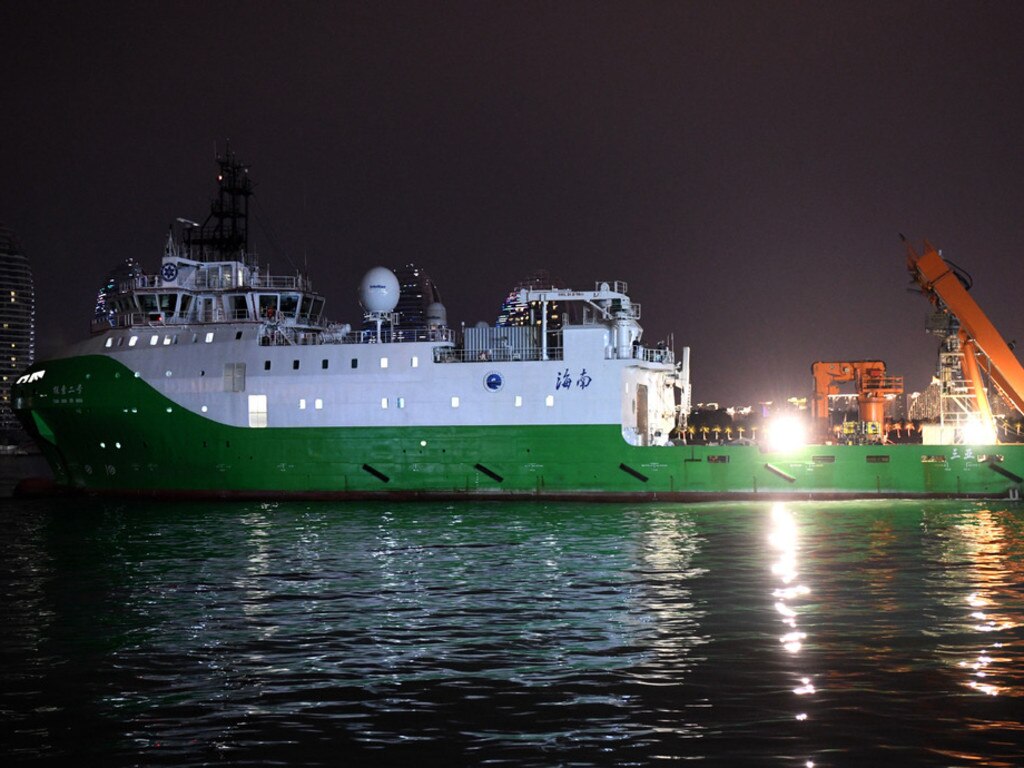


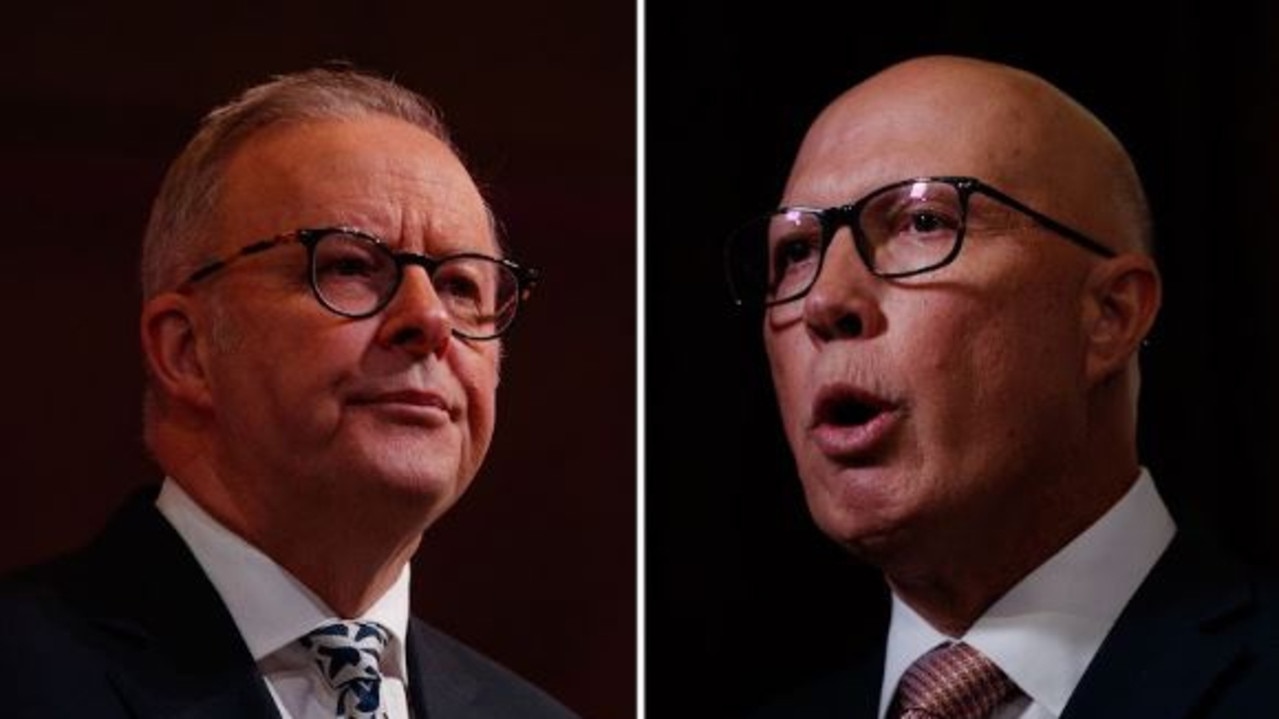

To join the conversation, please log in. Don't have an account? Register
Join the conversation, you are commenting as Logout